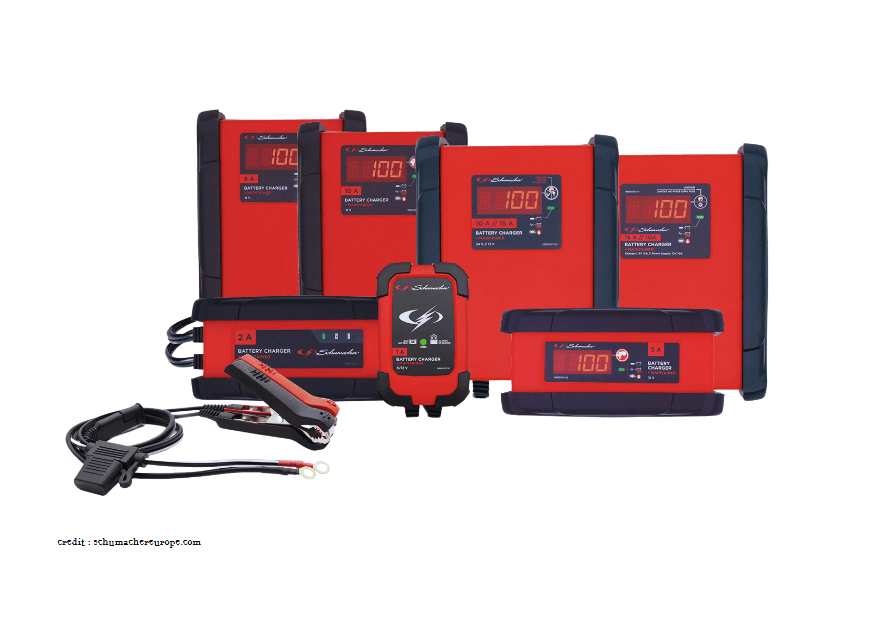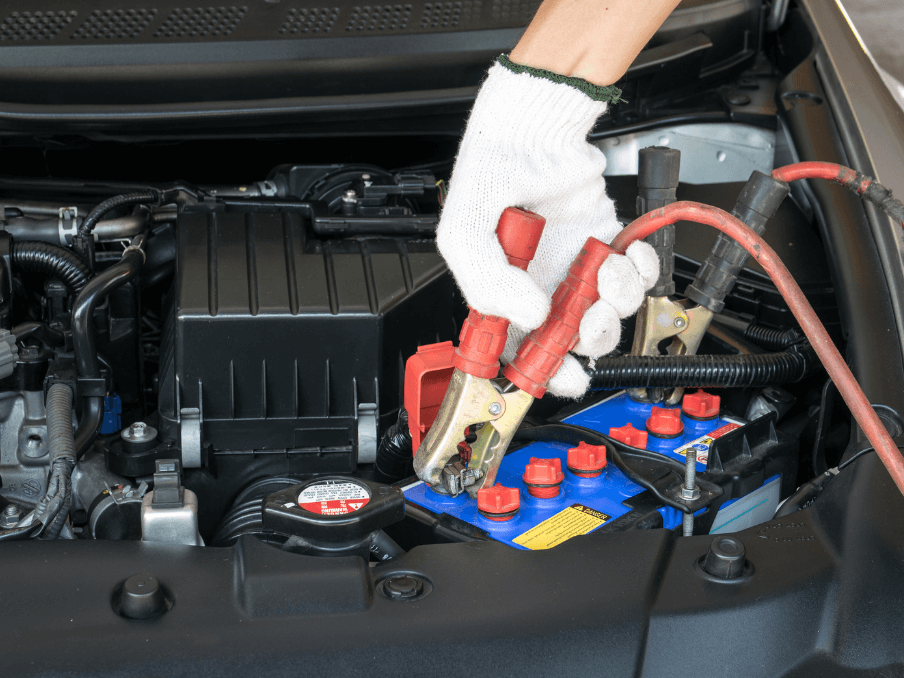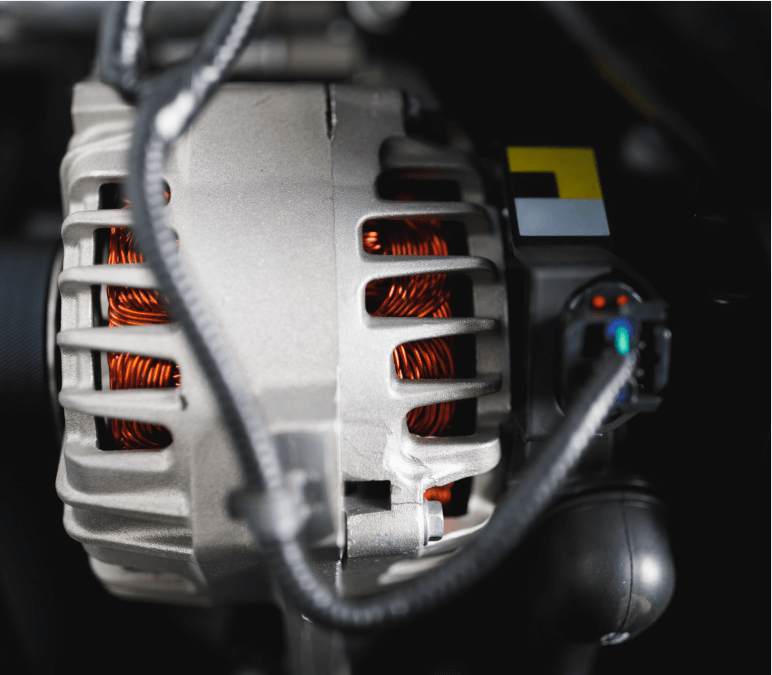
When it comes to your car’s electrical system, the alternator plays a crucial role. It keeps your battery charged, ensuring your car runs smoothly. But what if something goes wrong? Can your alternator overcharge the battery?
Overcharging might sound like a small problem, but it can lead to serious issues if left unchecked. It can damage your battery, affect your car’s electrical system, and leave you stranded. I’ve been through this myself, so I know how important it is to get a good grasp of how it works and how to spot the signs of overcharging early.
I’ll explain whether a car alternator can overcharge the battery, how to know if it’s happening, and what to do if it does.
What Does the Alternator Do for Your Car?
Before we get into the details of overcharging, it’s important to understand the role of your car’s alternator. It’s basically the heart of your car’s electrical system. The alternator takes mechanical energy from the engine and converts it into electrical power, which is used to charge the car’s battery and power various components like the lights, radio, and air conditioning.
When you start your car, the alternator kicks into action, making sure the battery stays charged while you’re driving. This is crucial because a fully charged battery ensures your car can start and continue running.
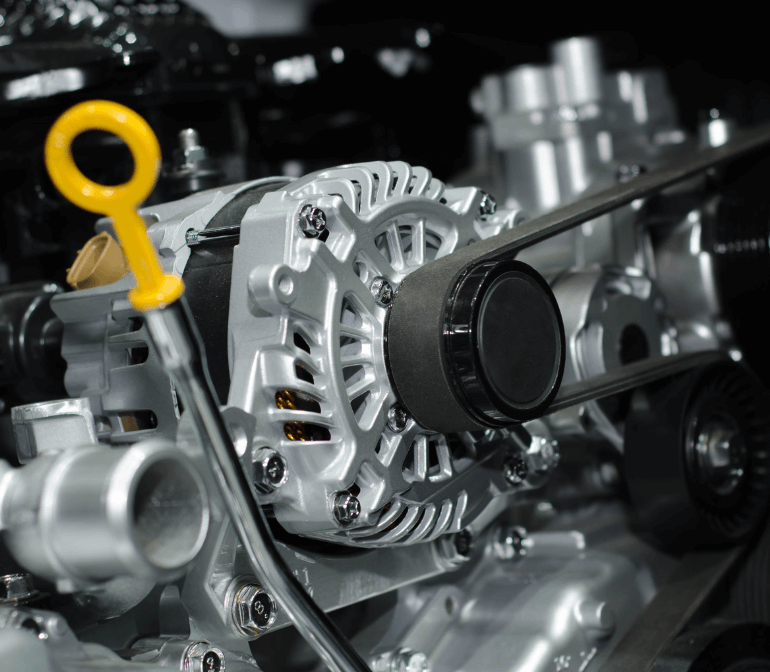
Can an Alternator Overcharge the Battery?
Yes, an alternator can overcharge a battery, but it doesn’t usually happen unless there’s a problem. The alternator is designed to charge your car’s battery to a certain level—typically around 14 to 14.5 volts. If your alternator is working properly, it will charge the battery without going beyond this voltage.
However, if there’s an issue with the alternator voltage regulator or other components, it can cause the alternator to deliver too much voltage to the battery. This overcharging can lead to a variety of problems, including battery damage, excess heat buildup, and potentially dangerous situations.
So, while the alternator is a crucial part of your car’s charging system, it’s possible for it to go haywire and overcharge the battery if something malfunctions.
What Causes a Car Alternator to Overcharge the Battery?
Now that we know an alternator can overcharge the battery, let’s take a closer look at why this might happen. There are a few key reasons why overcharging occurs:
Faulty Voltage Regulator
The most common cause of alternator overcharging is a faulty voltage regulator. The voltage regulator controls how much electricity the alternator sends to the battery. If it stops working properly, it may allow the alternator to send too much voltage, leading to overcharging.
Worn or Damaged Alternator Diodes
Alternators have diodes that convert alternating current (AC) to direct current (DC) for your car’s electrical system. If these diodes are worn out or damaged, it can lead to the alternator sending too much power to the battery.
Electrical Issues
Sometimes, an electrical issue, such as a short circuit or a bad connection, can interfere with the alternator’s functioning. These problems can cause the alternator to work improperly, leading to overcharging.
Incorrect Battery Type
If you replace your car battery with one that’s not compatible with your alternator, it can affect the way the system works. A battery with a lower capacity or different voltage rating might not handle the amount of charge the alternator sends, leading to overcharging.
How to Tell If Your Car’s Battery Is Being Overcharged
So, how do you know if your alternator is overcharging the battery? There are some telltale signs that can help you spot the problem early before it causes major damage.
Battery Overheating
One of the most common signs of overcharging is an overheating battery. If your battery feels warm or hot to the touch, it could be a sign that it’s being charged too much. Overcharging generates excess heat, which can cause the battery’s internal components to break down.
Swelling or Leaking Battery
Another sign of overcharging is a swollen or leaking battery. When a battery is overcharged, it can cause the electrolyte inside to boil and leak out. This can damage the battery and cause corrosion around the terminals.
Dim or Flickering Dashboard Lights
If you notice your dashboard lights flickering or dimming when the car is running, it could indicate that the alternator is sending too much voltage to the electrical system. This is a sign that the alternator is malfunctioning and could be overcharging the battery.
Burning Smell
A burning smell coming from the engine or under the hood can indicate that the alternator is overheating. This can happen when the alternator is working harder than it should be, which can lead to overcharging.
Battery Warning Light
Most cars have a battery warning light on the dashboard. If this light comes on while you’re driving, it could be a sign that there’s an issue with the charging system, including overcharging. If the light stays on, it’s a good idea to get your car checked as soon as possible.
Frequent Battery Failure
If your car’s battery keeps dying or needs replacing more often than usual, overcharging could be the culprit. Over time, overcharging can damage the battery, making it less effective and reducing its lifespan.
What Happens If Your Battery Is Overcharged?
Overcharging can cause a number of problems for both your battery and your car. Here’s what can happen if the alternator overcharges the battery:
Damage to the Battery
The most obvious consequence of overcharging is damage to the battery. Overcharging causes the electrolyte inside the battery to boil, which can lead to internal damage and reduced performance. This can shorten the battery’s lifespan and may even cause it to fail prematurely.
Excessive Heat Build-Up
Excessive heat is one of the most dangerous effects of overcharging. If the alternator keeps pumping too much voltage into the battery, it can cause the battery to overheat, which increases the risk of thermal runaway. Thermal runaway occurs when the battery becomes too hot and starts to self-destruct, which can be hazardous.
Potential for Fire or Explosion
In extreme cases, overcharging can cause a fire or explosion. If the internal pressure in the battery becomes too great due to excessive heat, the battery casing can rupture. This could lead to a fire or even an explosion, which is obviously a dangerous situation.
Damage to the Car’s Electrical System
Overcharging doesn’t just affect the battery it can also damage other parts of your car electrical system. Too much voltage can cause sensitive components, like the alternator, fuses, and wiring, to burn out. This can result in costly repairs and downtime.
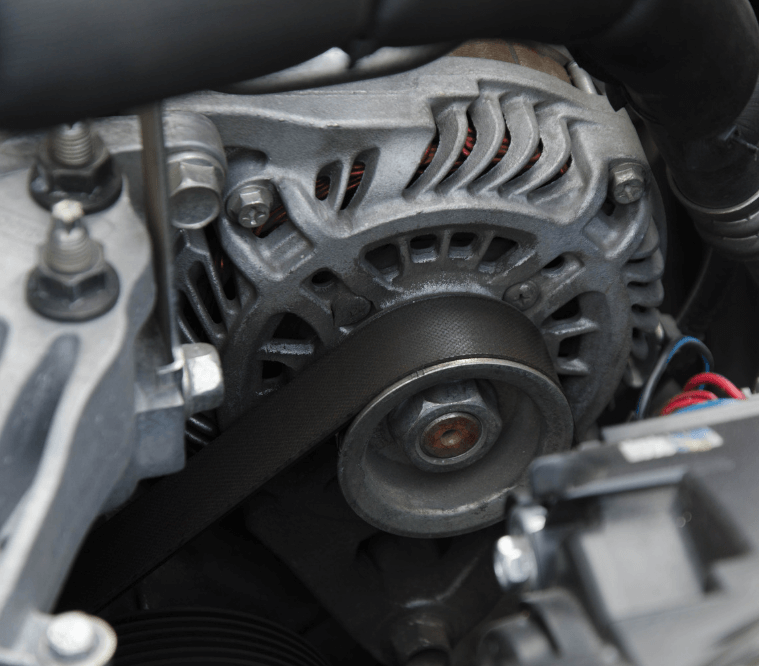
What to Do if Your Car Alternator Is Overcharging the Battery
If you suspect that your alternator is overcharging the battery, it’s important to take action as soon as possible to prevent further damage. Here’s what you should do:
1. Turn Off the Car and Inspect the Battery
If you notice signs of overcharging, turn off the car immediately and inspect the battery. Look for any signs of swelling, leaks, or overheating. If the battery is hot or damaged, you may need to replace it.
2. Check the Alternator
Next, check the alternator to see if it’s working properly. You can use a multimeter to test the voltage output from the alternator. If the voltage exceeds 14.5 volts, it could indicate that the alternator is overcharging the battery. In this case, the alternator needs to be repaired or replaced.
3. Replace the Voltage Regulator
If the voltage regulator is the cause of the overcharging, it may need to be replaced. A faulty regulator can prevent the alternator from properly controlling the amount of voltage being sent to the battery.
4. Consult a Mechanic
If you’re not sure what’s causing the overcharging, or if you don’t feel comfortable fixing it yourself, it’s best to consult a mechanic. They can diagnose the problem and recommend the necessary repairs to get your car back in working order.
How to Prevent Overcharging in the Future
Preventing overcharging in the first place is the best way to avoid damage to your car’s battery and electrical system. Here are some tips to help you avoid this problem:
Regularly Inspect Your Alternator and Battery
One of the easiest ways to catch overcharging early is to inspect your alternator and battery regularly. Look for signs of wear, corrosion, or damage, and have any issues addressed promptly.
Maintain a Properly Functioning Voltage Regulator
The voltage regulator plays a key role in preventing overcharging. Make sure it’s working properly, and replace it if it starts to show signs of failure.
Use the Right Battery for Your Vehicle
Always use the correct battery for your vehicle. Using a battery that’s not designed for your car can lead to charging issues, including overcharging.
Keep Your Electrical System in Good Shape
Ensure your car’s electrical system is properly maintained. Clean connections, replace worn-out wires, and keep the system in good condition to prevent overcharging and other electrical problems.
Conclusion
Overcharging by your car’s alternator is a serious issue that can cause damage to your battery and other electrical components. If you notice any signs of overcharging, such as overheating or leaking, it’s important to take action right away. Regular maintenance and inspections of your battery and alternator can help prevent this problem and keep your car running smoothly.


